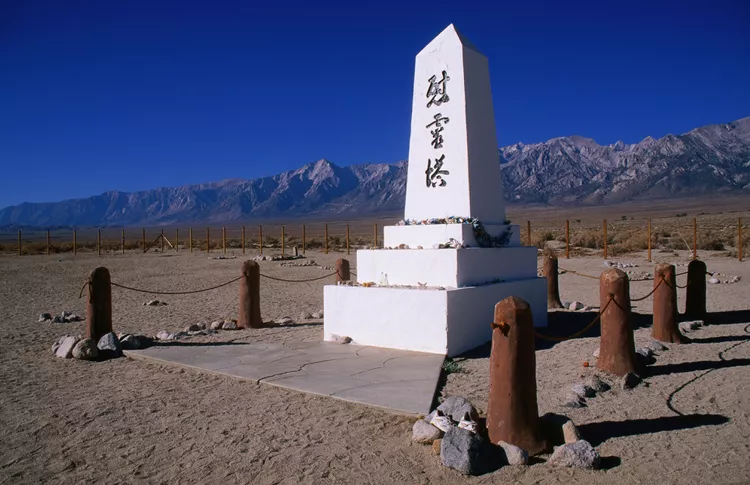Summary
History of Manzanar
In 1942, President Franklin D. Roosevelt signed Executive Order 9066, authorizing the Secretary of War to create “Military Areas.” Consequently, anyone perceived to threaten the war effort was removed. Without any due process and given only days to decide on their homes, businesses, and possessions, all individuals of Japanese ancestry residing on the West Coast were forcibly relocated to “internment camps.” Notably, Manzanar in California was one of ten such camps established in the western United States, where over 10,000 Japanese Americans lived until the war’s conclusion in 1945.
To preserve this significant story, the Manzanar National Historic Site was established in 1992. The visitor center, which opened in 2004, is rich with the voices of those who lived there, offering insights into their thoughts and emotions in the aftermath of Pearl Harbor and how these events shaped the lives of the internees.
Eight guard towers once marked the perimeter of the camp, manned by Military Police armed with submachine guns. The National Park Service reconstructed one of these towers in 2005, visible from the highway.
For those interested, a self-guided auto tour brochure is available at the visitor center, guiding visitors around the camp and to the poignant cemetery site, famously captured in an Ansel Adams photograph.
Manzanar National Historic Site Tips
- Dogs are permitted on the Manzanar grounds; however, they are not allowed inside the visitor center. During summer months when temperatures can exceed 100°F, consider having one person stay with your pet outside while others visit the center.
- The closest dining options are in Lone Pine. It’s advisable to stop there if you’re feeling hungry.
- The 22-minute film Remembering Manzanar is highly recommended. It is closed captioned, and audio descriptive devices are available.
- Even if you don’t need to use the restrooms, make sure to visit them as the exhibits in that area are particularly impactful.
Visiting Manzanar with Kids
Remarkably, two-thirds of the individuals interned at Manzanar were under 18 years old. Be sure to explore the back section of the visitor center exhibit, specifically dedicated to the children of Manzanar, for a deeper understanding of their experiences.
Manzanar Review
Manzanar is rated 4 stars out of 5 due to its well-curated exhibits that delve into various aspects of life within the camp. While the auto tour may feel somewhat bland without the original structures, it is expected to become more engaging once the Mess Hall restoration is completed.
Getting to Manzanar National Historic Site
Manzanar National Historic Site
Hwy 395
Independence, CA, CA
760-878-2194 ext. 2710
Manzanar National Historic Site website
Manzanar lies 9 miles north of Lone Pine, 226 miles from Los Angeles, 240 miles from Reno, NV, and 338 miles from San Francisco. Accessing the site is straightforward via U.S. Hwy 395. For those traveling from the San Francisco area, the most scenic route is through Yosemite National Park.




